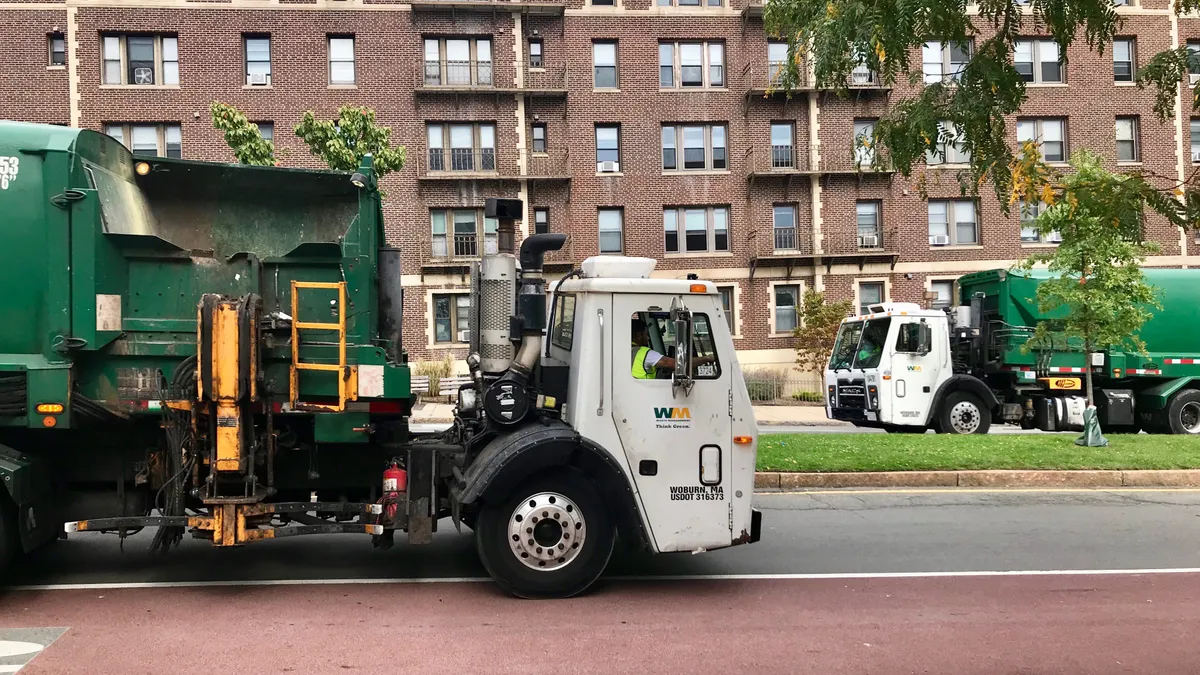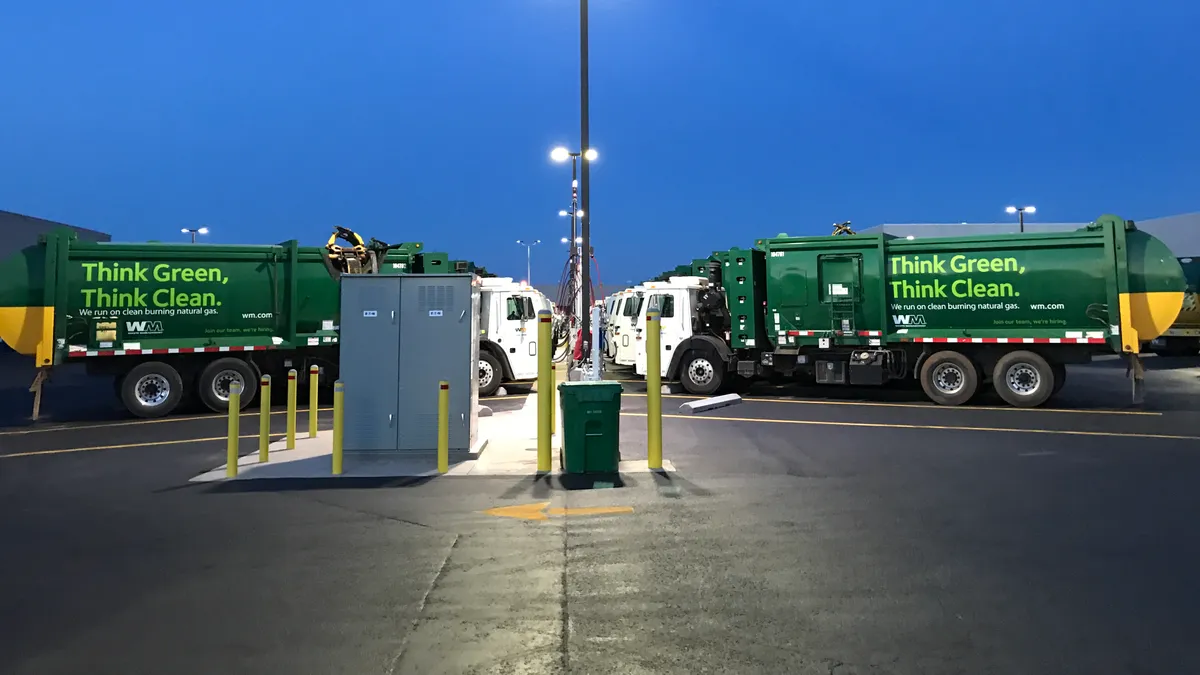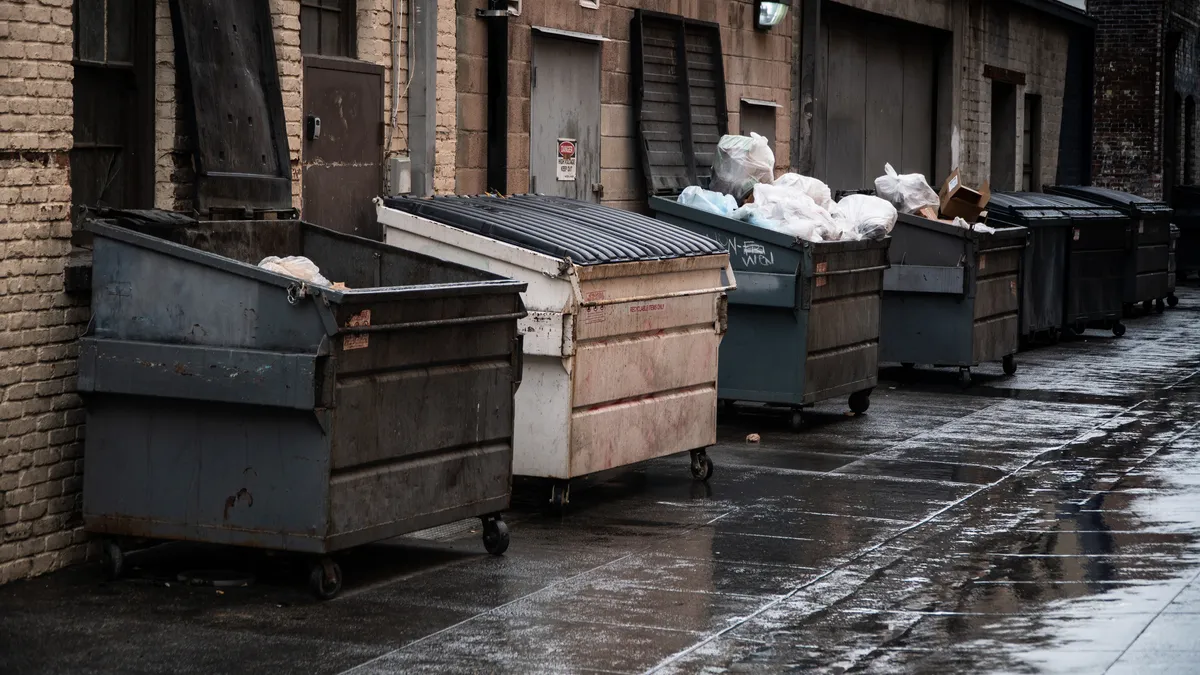WASTECON, held last week in Nashville, Tennessee, had many smaller sessions outside of the MRF Summit headliner. While Waste Dive couldn't get to all of them, here are a few that stuck out to us as significant given how often these issues come up in stories from around the nation.
Contamination confab
At the "Fighting Contamination" workshop on Aug. 20, representatives from The Recycling Partnership, Waste Management, Keep America Beautiful and the Southeast Recycling Development Council had attendees brainstorm ways to reduce contamination in their local areas.
One theme that stuck out was public education and the challenge of getting people to change their behavior. The Recycling Partnership advocated for a simplified marketing approach that used a more "direct ask" (e.g., a poster with bold letters saying "Don’t bag your recycling”) to initiate one change at a time instead of listing off multiple steps for people to take. Keep America Beautiful emphasized the need for consistency in education.
After the introduction, attendees were asked to discuss different scenarios in breakout groups. One scenario involved a "fairly dense" city of 50,000 homes with cart-based collection using a private hauler. The resulting discussion centered on curbside tagging programs and the challenges in communities that lack the political capital to reject carts if they don't meet contamination standards. Another exercise asked the groups to design a flyer, handout or similar communications tool to help motivate consumers to recycle right. One participant from Fort Smith, Arkansas said the city's usage of infographics or other visual aids were far more successful than plain text.
Some participants shared frustrations about how recycling didn't even exist in their communities, while others got into more detail about their programs, saying the industry needs to push cultural change to get people to recycle right. As one participant said, to many nods of agreement, "As soon as one person puts a coffee cup in [the recycling bin], everyone puts a coffee cup in."
The Recycling Partnership's Cody Marshall ended the workshop with a challenge to those that received scholarships to attend. He asked them to implement tools and strategies they'd learned in their local communities, measure the effects and share the findings during a follow-up webinar in December.
Safety Summit gets real
At the Safety Summit on Aug. 21, Wendylee Fisher, assistant administrator of Tennessee OSHA, began by examining factors that led to a few recent local accidents and how those situations resulted in citations. A key takeaway was that many organizations have policies and procedures in place for safety awareness and training, but they often aren't followed closely enough. Ultimately, Fisher said "It's part of your job, as the employer, to figure out how you're going to fix [safety issues]."
The moderator then opened up the floor for questions. One that stuck out, since technology is normally associated with increased safety, was whether she had noticed a decrease in incidents in cities with automated collection vehicles. Fisher said after looking at industry fatalities in Tennessee from 2012 to 2018, she wasn't aware of any correlation.
Five SWANA Safety Ambassadors then took the stage for the usual questions, but an emotional closing comment captured everyone's attention. Eddie Anderson, a general manager at Stringfellow, illustrated how even the most seasoned members of the industry aren't immune to danger. He recounted a story of a young man that he knew from his hometown had a father who drove a garbage truck on a small, private route. The man grew up riding in the truck from age three or four, then after graduating from junior college, his father bought him a truck to start his own collection business.
Anderson recalled the accident, which happened in the middle of winter in poor weather: "One day … he went to help his father finish his route. The boy had been raised in the garbage business all of his life … he had seen safety every day. He knows what he's supposed to do. They're picking up garbage off a dock. He gets behind the truck to show his father to come on back to approach the dock. The father hit a patch of ice, couldn't stop the truck [and] cut the boy in half. He knew not to be there. But he was worried about the time [and] he was there. He's dead. That's it."
The Fire Epidemic
At the "Safety Zone" presentations on Aug. 22, speakers highlighted trends affecting many industry players, including the increase of fires in waste storage areas.
Ryan Fogelman of Fire Rover said fires are on the rise. According to a recent California Products Stewardship Council survey, 83% of waste and recycling facilities reported some type of fire incident in the past two years. He also pointed out that paper fires have increased in 2018, and indicated that increased stockpiling of material due to China's import ban may be the reason. Fogelman said 40% of waste and recycling facilities had a fire in the past 12 months, a figure likely to increase by the year's end. As of June, fires have increased by 77% YoY.
Insurance companies are catching on to this trend as well, with some threatening to drop coverage if facility managers can't find a way to reduce risk, he said. With fire risks expected to increase in the near-term — whether it be from stockpiling, lithium ion batteries or other factors — this trend will only become more expensive without the right precautions.



















